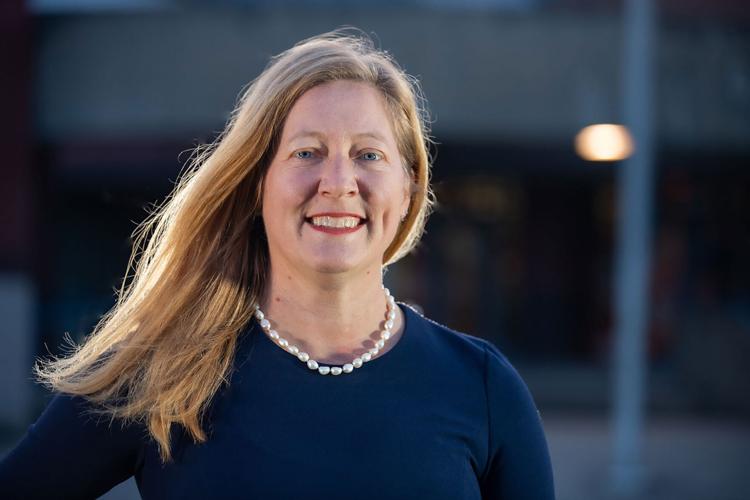Back in 2019, Tonya Hancock shellacked two opponents to win her seat in District 9.
She’s built a first-term identity on strong support for emergency services, specifically the police and firefighters, earning her a spot alongside fellow Councilmembers Robert Nash, Russ Pulley, Courtney Johnston and Robert Swope in what Scene columnist Nicole Williams calls Metro’s “Cop Caucus.” The group, labeled by Williams for its praise of the Metro Nashville Police Department and unwavering support for police spending requests, is also a proxy for the chamber’s more conservative members — unsurprisingly, Hancock has already earned the local police union’s endorsement for District 9.

Tonya Hancock
Hancock’s law-and-order tendencies are personal — campaign photos feature her husband, a lieutenant colonel in the Tennessee Army National Guard, in his fatigues. And as a self-proclaimed “Navy brat,” she connects her own commitment to public service to a lifetime of experiences with state and federal armed forces and, briefly, her own stint in the foreign service in the Bulgarian capital of Sofia.
Among her first-term achievements, Hancock first lists her successful push to end lifetime health care benefits for councilmembers — something she calls a small but important show of fiscal responsibility.
“It will probably save $1 million a year,” Hancock tells the Scene. “But for the citizens, it let them know we cared and weren’t going to keep a plan that they felt was out of whack because it had always been there.”
Recently, she helped broker a deal with Metro Parks and MNPD to relocate the city’s mounted patrol facilities to Peeler Park, combining her interest in law enforcement and outdoor recreation. As a Metro Nashville Public Schools parent with a career in education at Texas Instruments, she emphasizes her connection to city schools and her service on MNPS’ parent advisory council.
This campaign season, Hancock has rebranded as “Two Term Tonya” and posted $22,100 toward a $30,000 goal, according to a fundraising thermometer on her website. The last campaign finance disclosure, filed April 10, declared $16,206.67 on hand, thanks in part to $2,000 from herself and her husband and large donations from prolific Metro lobbyist James Weaver, Ray Render (district director for Republican U.S. Rep. John Rose), scattered real estate interests, and the PAC run by downtown law firm Waller Lansden Dortch & Davis. A courteous $50 came from fellow Councilmember Burkley Allen. In the nonpartisan theater of city politics, Hancock has aligned herself with the traditionally conservative conception of government — a guarantor of the status quo, responsibly administering public resources, rather than a vehicle for societal change. The traditional values might fit District 9, a more suburban cross section of Davidson County dotted with charter academies and private Christian schools where homes are only just now becoming unaffordable. Then again, they might not.

Stephanie Montenegro
The district branches east off two dozen commercial blocks in Madison, just past Dee’s Country Cocktail Lounge, an area that might soon be known as Northeast Inglewood. By area, it’s mostly single-family homes all the way down Neely’s Bend. Peeler Park, hemmed in by the Cumberland, has miles of trails and its own airpark — Shelby for half the price and twice the commute. Stephanie Montenegro lives in one of these homes with her wife and kids. She filed campaign papers 24 hours before the race deadline in May and hasn’t yet filed any official fundraising disclosures.
Montenegro’s campaign echoes candidates like current District 19 Metro Councilmember Freddie O’Connell (who’s running for mayor) and Quin Evans Segall (who’s running for one of the council’s five at-large seats). They represent a growing ideological pole, defined by its focus on quality-of-life deliverables like pedestrian infrastructure, public transit options, bike lanes and strong traditional public schools. They’re critical of the city’s big public subsidies that favor corporations and tourism, usually represented by the recent Titans stadium deal, which passed with Hancock’s support. Inside the council, allies like Councilmember Sandra Sepulveda and Councilmember At-Large Bob Mendes have preached similar politics; both have endorsed Montenegro over Hancock, their colleague of four years.
“I haven’t seen a strong leader in council for District 9,” Montenegro tells the Scene. “A large part of our district is on limited income or working families. We have a lot of seniors in our community who rely on public transit. We need affordable housing, safer roads and stronger public schools instead of a brand-new Titans stadium. Madison has just been forgotten.”
Nashville’s suburbs have seen property taxes continue to rise, traffic get worse and public schools struggle while party barges crisscross downtown. Both candidates reference the district’s large Hispanic population — Montenegro’s family immigrated from Colombia two decades ago — and the area’s strong sense of community. If Montenegro can effectively communicate what she sees as a raw deal to her neighbors (and make Hancock responsible for it), she could pull off the upset.
With name recognition and an incumbent (and alphabetical) advantage, Hancock remains the favorite. She’s built a base with open-ended community meetings during her first term. But unlike races in more homogenous corners of the city, Montenegro’s challenge represents a chance to determine Davidson County’s appetite for change.
All 40 Metro Council seats are up for election, and early voting begins in one month







